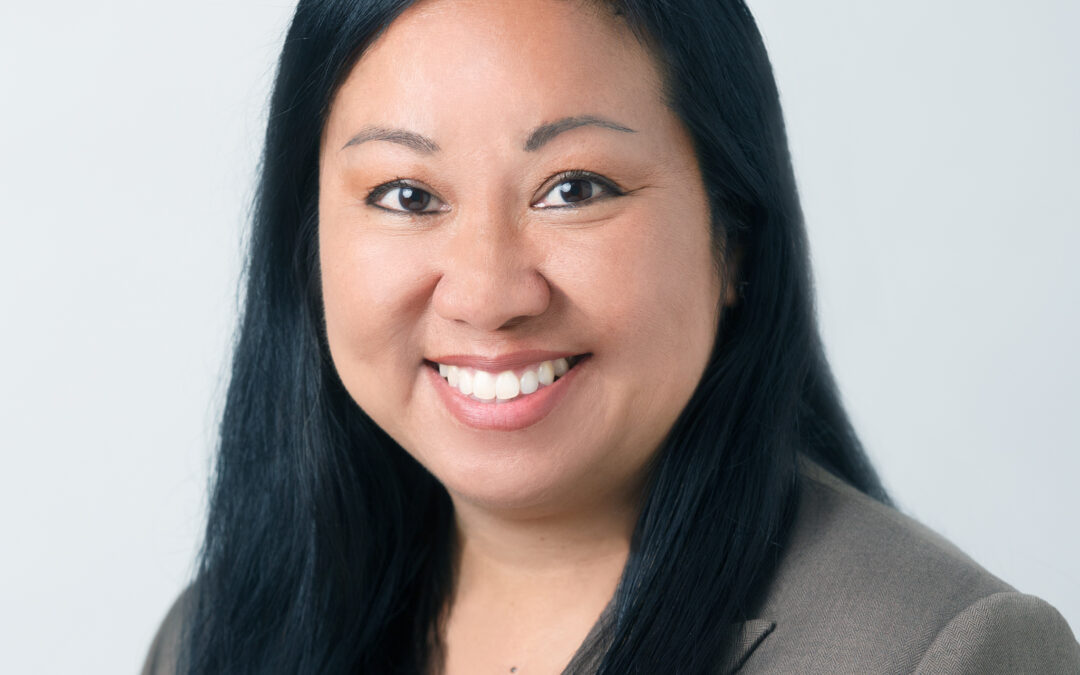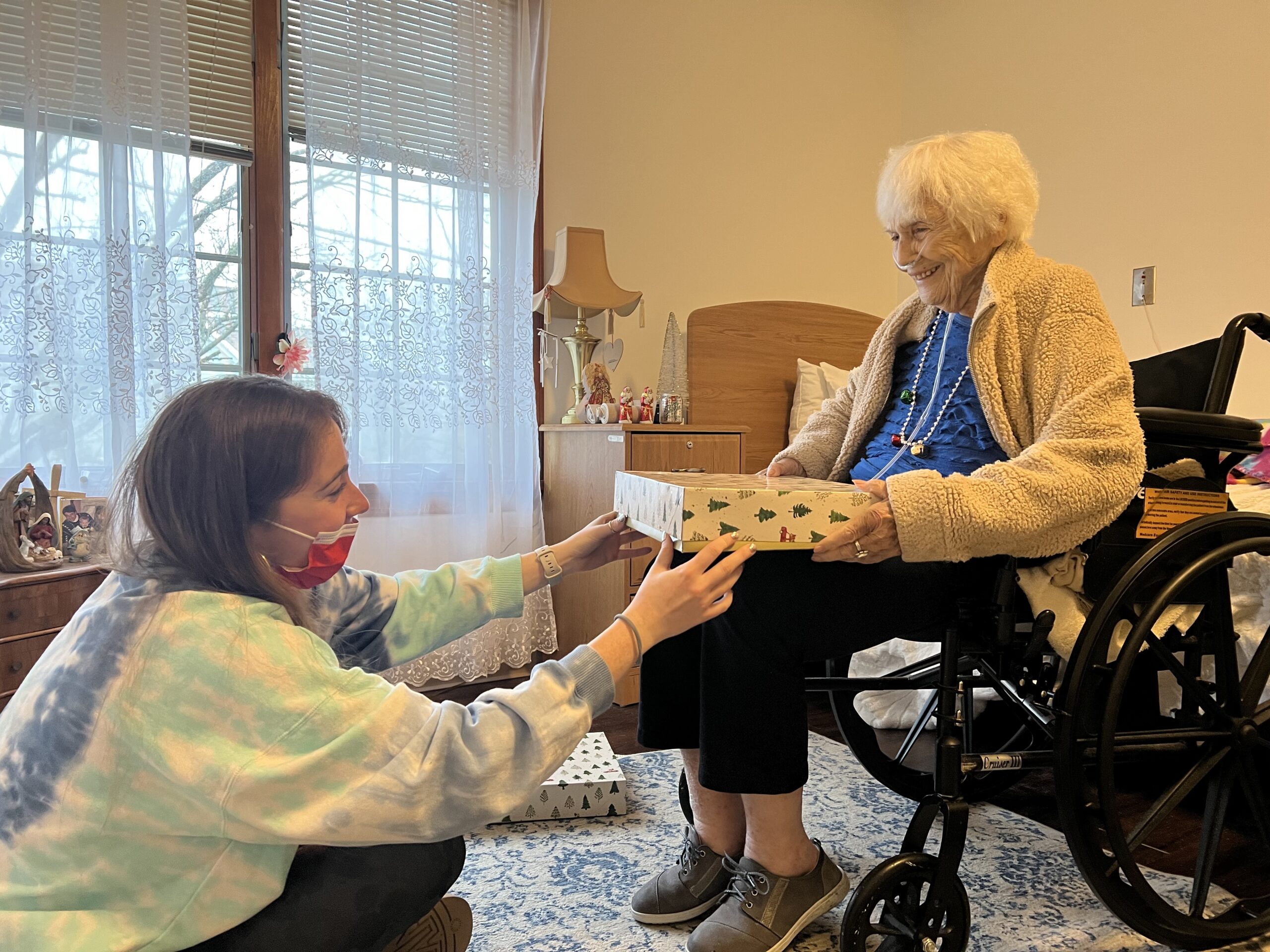
Wellness in the Home
“Wellness in the Home,” a webinar for Hicksville Public Schools featuring Kathy Rivera, North Shore Child & Family Guidance Center Executive Director/CEO.

“Wellness in the Home,” a webinar for Hicksville Public Schools featuring Kathy Rivera, North Shore Child & Family Guidance Center Executive Director/CEO.

By Kathy Rivera
This column appeared in January 11, 2023 issue of Anton Media newspapers
All of us have experienced unprecedented challenges in the last three years, resulting in heightened levels of anxiety and stress. So much is out of our control, and that can feel overwhelming. But there are steps you can take to safeguard your wellbeing and that of your family.
As you welcome in 2023, take the opportunity to put into place some of these eight resolutions to start the New Year off right.
Wishing you and your family a happy, healthy and peaceful New Year!
Bio: Kathy Rivera, LCSW, the Executive Director/CEO of North Shore Child & Family Guidance Center, Long Island’s leading non-profit children’s mental health organization. To get help for your child or to support the Guidance Center’s lifesaving work, call (516) 626-1971 or visit www.northshorechildguidance.org.

As we welcome 2023, we are grateful for the dedicated employees who make North Shore Child & Family Guidance Center such a valuable resource to our community. We are also thankful for all of you who support our work!
Each year, we ask our staff members what their hopes and dreams are for the year to come. Here are some of their responses.

“The New Year brings in new opportunities and new adventures. Wishing everyone a safe, healthy, and prosperous new year. May the tears you cried in 2022 water the seeds you’re planting in 2023.” – Kathy Rivera, LCSW, Executive Director/CEO
Photo: Kathy (left) with colleagues Joan and Nicole at our holiday party

“My hope for the New Year is for more kindness shared around the world. My wish for the New Year is for health and happiness for my family, my friends and my wonderful colleagues. My dream for the New Year is to help people in need of support/ guidance.” – Francesca Carbone, LMSW
Photo: Francesca

“I will be spending New Year’s Eve en route to Antarctica and my hope is for a safe crossing over the Drake passage! I feel grateful for the opportunity to experience my 7th continent and am looking forward to more great travel adventures with my family in the future.” – Lauren McGowan, Director of Development
Photo: Dash McGowan

“My hope for the New Year is to continue to grow and learn.” – Diana Kutulos, LMSW
Photo: Buzz Kutulos

“My hope for the New Year is that everyone is healthy and cherishes time with their friends and families. To wake up each day and try to find peace within themselves and to spread that to those they encounter. I hope people find new friends, new hobbies, new passions that add joy into their lives. Happy New Year!” – Kate Braumuller, Research Coordinator
Photo: Kate and her grandmother celebrating the holidays

“My wish is for more happiness and peace in 2023.” – Nicole Oberheim, Development Manager
Photo: Andreas, Markus and Kiersten Oberheim

“Embracing the ‘gratitude train’ is something I want to work more on in the New Year.”
– Diane Stranieri, MS, RN

“My wishes for 2023 are good health, happiness and for the world to be a better place for EVERYONE! “ – Pascale Nerestant, Westbury Outreach Worker
Photo: Pascale

“My hopes/wishes/dreams for the new year are for myself and my family to remain healthy and to be at peace. I strive to continue being my best self.” – Dollicia M. Torres, Front Desk Coordinator
Photo: Dollicia

“My wish for the coming year is that all of the people that I care about, friends and family, find their peace, have things that bring them joy, and heal. I hope that I can create a space for that to take place, a soft place to land when in stormy seas. I want the best for everyone. May we all always have a light in the dark.” – Marisa Padgett, LCSW
Photo: Rocket Padgett

“One of my hopes is that all shelter animals find loving homes. Rescue pets are the best!” – Jenna Kern-Rugile, Director of Communications
Photo: Jenna and Lucy

“My hopes for the New Year are for us all to have as much peace as possible!
– Gillian Uhl, LMSW

“May 2023 be filled with happiness and peace for all. Happy New Year!” – Julia Bassin, LCSW
Photo caption: Piper and Lorelai Bassin

“My dream for the New Year is to start a podcast based around mental health. I want to spread awareness and be a voice for people who might not have the courage to do so. I want people to know how serious it is and how it could affect people and their families. My hope for the New Year is ending gun violence; a close family friend of mine lost a significant other due to gun violence and it’s just unacceptable. – Laisha Rivera, Support staff/front desk
Caption: Laisha

“May the New Year enhance appreciation for one’s blessings, incite deeper reflections, and pique one’s willingness to navigate intrepidly in opposition of life’s uncertainties”. -Lydiane Interdonato, MS, Community and Home-Based Services/Case Manager
Photo: Lydiane

“To lose enough weight so that ALL my clothes fit with enough room to breathe. To get closer to my higher power. Peace on Earth. Improve environmental woes all over the world. Guidance Center patients find hope and peace. Continue to build strength in the team meeting system.” – Ruthellen Trimmer, Psychiatric Nurse Practitioner and Clinical Specialist
Photo: Ruthellen

Newsday, By Bart Jones
Nonprofits on Long Island say they are offering affordable mental health therapy for teens and young children — without long waiting lists — as the region faces a shortage of psychologists serving those age groups.
Many families in Nassau and Suffolk counties have grown frustrated trying to find private therapists, who often don’t take insurance and have waiting lists months long — or no available appointments at all.
The nonprofits are encouraging parents to contact them at a time when depression, anxiety and suicide rates among young people are rising due to a confluence of factors including isolation during the COVID-19 pandemic and heavy social media use.
“Right now, we have capacity to take on cases,” said Kathy Rivera, executive director and CEO of North Shore Child & Family Guidance Center, with offices in Manhasset, Roslyn Heights and Westbury.
“We turn no one away for any inability to pay,” she said. “We are grassroots, and we are committed to equity in mental health regardless of what your ZIP code is, what your bank account looks like. Everyone deserves to have access to care.”
The agency has 50 therapists on staff, along with other workers and a department that deals solely with insurance companies, she said.
Nonprofits such as North Shore said they can help fill a gap as families struggle to find therapists for their children. Some parents are taking their kids to private therapist appointments during school hours — the only time slots available — while others are getting saddled with thousands of dollars in bills because their therapists don’t take insurance, experts said.
Meanwhile, the number of people between the ages of 12 and 17 nationwide who experienced at least one major depressive episode increased by 306,000, or 1.4%, year-over-year, according to an October 2021 report from the Mental Health America nonprofit. At the same time, nearly 61% of New York youths with major depressive episodes did not receive treatment, the report said.
Adrienne LoPresti, executive director of YES Community Counseling Center in Massapequa, said her nonprofit also generally has capacity to provide therapists for young people in a timely manner.
“There is a comprehensive system of care for youth and families, which includes YES, that provides affordable services regardless of income and health insurance status,” LoPresti said. “Unfortunately, many community members are unaware of these networks and resources.”
LoPresti cautioned that families should make sure they connect with reputable agencies, since there is a proliferation of people offering “telehealth” appointments who are not always qualified.
“It’s important to find access to a vetted mental health provider you trust in your community,” she said. Local schools, ones that have their own psychologists and social workers, can help identify reputable therapists, she added.
While telehealth services offer some advantages, “it is often the financial gains rather than quality care” that is the priority, she said. In-person counseling is generally more effective than on-screen, she added.
Besides YES and North Shore, agencies families can contact to help find a community-based therapist include the Nassau County Helpline, at 516-227-TALK (or 8255), and the Long Island Crisis Center‘s 24/7 hotline, at 516-679-1111, LoPresti and Rivera said.
Central Nassau Guidance and Counseling Services based in Hicksville also has therapists available, and works with families on a sliding scale if they have financial difficulties, CEO Jeffrey Friedman said.
Some agencies are seeking to adapt to Long Island’s increasingly diverse population.
North Shore Child & Family Guidance Center has intake staff who speak fluent Spanish and other staff members who can translate Creole and Arabic, Rivera said.
Another agency, the Hispanic Counseling Center, with offices in Hempstead and Bay Shore, focuses on Latino children, youth and adults. Its Mental Health Clinic offers bilingual and bicultural mental health counseling, and refuses services to no one, CEO Claudia Boyle said.
In response to the growing demand, the group is boosting its efforts to hire more therapists, she said.
In Suffolk County, the nonprofit Rise Life Services in Riverhead opened a mental health clinic in November 2021 that includes treatment for children after it saw a growing demand for therapists for that age group, said Tracey Anderson, operations director of clinical services and behavioral health.
Their anticipation of “a high demand for mental health services for youth was certainly on point,” she said. “The demand is even higher than we expected. “
The nonprofit Family Service League, which works throughout Suffolk County, has seen the need for more therapists first hand and through its DASH hotline helps families connect with them, said Kathy Rosenthal, senior vice president at the group.
“We are finding youth with higher rates of anxiety, depression and other mental health challenges, and, tragically, an increase in young people attempting and dying by suicide, she said.
The number of teenage suicides her group responded to in Suffolk tripled between 2020 and 2021, going from four to 12, she said.
Families can contact FSL’s hotline DASH at 631-952-3333. They can also contact the Suffolk County Response Crisis Center at 631-751-7500 for help in finding a therapist.
Groups representing private therapists said families should not give up on seeking their help. The Suffolk County Psychological Association‘s website allows families to plug in their hometowns, insurance and other information to try to match them with a therapist, said Ann Eckardt Erlanger, past president of the group. The Nassau County Psychological Association has a similar website mechanism.
Rivera also said families should keep trying to get their children help, despite the obstacles.
“There is hope and an opportunity for healing,” she said.
The nonprofits are encouraging parents to contact them at a time when depression, anxiety and suicide rates among young people have climbed because of the pandemic and heavy social media use.
